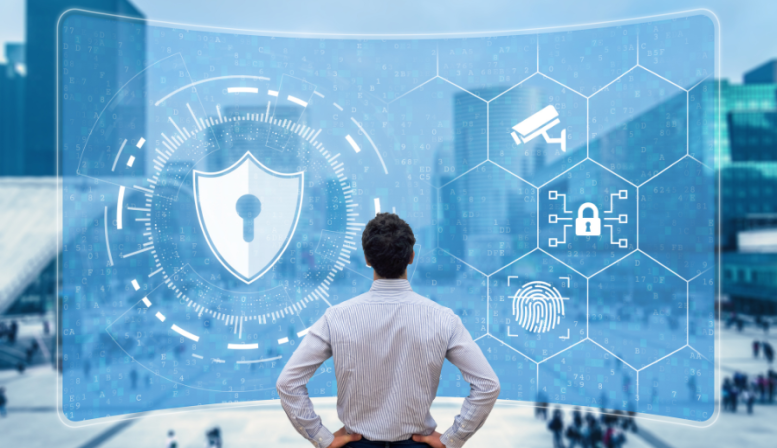Cyber-Savvy Society: How Public Speaking Can Educate and Inspire Cybersecurity Consciousness

In today's interconnected world, cybersecurity has become an essential aspect of our daily lives. According to a recent Forbes article, the cost of cybercrime is expected to hit $8 trillion in 2023 and grow to a whopping $10.5 trillion by 2025. This underscores the urgency for robust cybersecurity measures to protect sensitive information, systems, and infrastructure from cyber threats.
As individuals and organizations rely increasingly on digital platforms and technologies, the need to understand and address cybersecurity risks becomes paramount. One effective way to educate, inspire, and spread awareness about cybersecurity is through the power of public speaking.
In this article, we will explore how public speaking can play a crucial role in building a cyber-savvy society, empowering individuals with knowledge, and inspiring them to prioritize digital security.
Public Speaking in Cybersecurity Education
Public speaking serves as a potent tool to educate individuals about cybersecurity. By delivering engaging presentations, speakers can raise awareness about the importance of digital safety, highlight prevalent threats, and emphasize the significance of adopting secure practices.
Speakers can connect with their audiences by conveying the potential consequences of cyberattacks and the benefits of proactive measures. Public speaking platforms enable the dissemination of essential knowledge, empowering individuals to take action and make informed decisions to protect their digital lives.
Captivating Audiences With Real-World Scenarios
One effective approach to engaging audiences is by presenting real-world cybersecurity scenarios. Public speakers can share gripping stories of cyber incidents, illustrating the impact they had on individuals, businesses, or even nations. These narratives help people relate to the potential risks they face, making the subject more tangible and relevant.
By discussing high-profile breaches, scams, or data leaks, speakers can demonstrate the urgent need for cybersecurity awareness and preparedness. Such presentations leave a lasting impression, motivating listeners to prioritize digital security in their personal and professional lives.
Empowering Individuals With Security Tips
Public speakers play a vital role in empowering individuals with practical cybersecurity tips. They can educate audiences on fundamental practices like strong password management, regular software updates, and safe browsing habits.
Speakers can also emphasize the importance of using reputable antivirus software, enabling two-factor authentication, and being wary of phishing attempts. They can also educate on how businesses require their employees to be up-to-date with the latest cybersecurity threats and best practices.
In a blog post published by IT Governance, it was highlighted that cybersecurity training proves to be the most efficient method for providing employees with the necessary knowledge to understand and mitigate potential risks. This training equips them with the skills to identify and respond appropriately to uncertain situations, ensuring they make informed decisions.
By equipping listeners with actionable strategies, speakers enable them to strengthen their digital defenses, creating a ripple effect that spreads cybersecurity consciousness throughout communities and organizations.
Inspiring a Cybersecurity Mindset
Public speaking platforms provide an excellent opportunity to inspire the next generation to develop a cybersecurity mindset. Speakers can engage students and young professionals by showcasing the exciting and rewarding aspects of the cybersecurity field.
By highlighting career prospects, ethical hacking, and the role of cybersecurity in protecting society, speakers can ignite curiosity and passion in young minds. Encouraging individuals to pursue cybersecurity education and careers creates a sustainable pipeline of experts dedicated to safeguarding the digital landscape.
Bachelor's Degree in Cybersecurity (BSc), Master's Degree in Cybersecurity (MSc), Graduate Certificate in Cybersecurity (GC), and Doctoral Programs in Cybersecurity (PhD) are some of the most popular programs in the field. A large number of students pursuing cybersecurity programs opt for a Master’s. It requires earning your bachelor in cybersecurity from an accredited institute, along with satisfactory academic performance, and sometimes work experience.
Collaboration and Knowledge Sharing
Public speaking engagements offer a platform for cybersecurity professionals to share insights and collaborate. By attending conferences, seminars, and workshops, experts can exchange knowledge, best practices, and emerging trends. Speakers can discuss the latest cybersecurity technologies, methodologies, and research, fostering a culture of continuous learning within the community.
For example, Tech Wire Asia recently provided insights on Generative AI, which is being hailed as the upcoming breakthrough in the field of cybersecurity. The report suggests that Generative AI has transcended its previous role as a mere contributor to discussions on digital security. Instead, it has now emerged as a transformative force, exerting influence and shaping the dynamics of the cybersecurity landscape.
These interactions and informative articles not only strengthen the collective expertise but also provide opportunities for networking and establishing valuable connections that can drive future collaborations and initiatives.
Cybersecurity Advocacy Beyond the Stage
Public speaking should not be limited to the stage alone. Speakers have the opportunity to extend their reach through various digital channels. Leveraging social media platforms, blogs, podcasts, and webinars, they can amplify their message and engage with a wider audience.
By utilizing these mediums, speakers can deliver bite-sized cybersecurity tips, share relevant news and resources, and encourage discussions on digital safety. This multi-faceted approach ensures that the advocacy for cybersecurity remains continuous, accessible, and adaptable to different learning preferences and demographics.
Summary
In today's interconnected world, cybersecurity has become a critical aspect of our lives. The escalating cost of cybercrime and the increasing reliance on digital platforms emphasize the need for robust security measures.
Public speaking has emerged as a powerful tool to educate and inspire cybersecurity consciousness. Speakers can raise awareness about digital safety, highlight the potential consequences of cyber threats, and emphasize the importance of secure practices.
By sharing real-world scenarios, speakers make the subject tangible and relatable. They can empower individuals with practical security tips and promote a cybersecurity mindset, particularly among the younger generation. Collaboration among professionals and the utilization of digital channels further amplify the impact of cybersecurity advocacy.
Ultimately, public speaking plays a significant role in building a cyber-savvy society that is prepared to address the challenges of the digital era.





